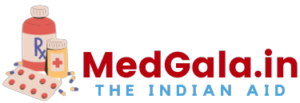Lignocaine hydrochloride injection, also known as lidocaine hydrochloride injection, is a widely used local anesthetic medication. It belongs to the amide class of local anesthetics and is administered either intravenously, subcutaneously, or intramuscularly, depending on the medical procedure and the area to be anesthetized.
Local anesthetics like lignocaine work by blocking nerve signals in a specific area of the body, thereby preventing the sensation of pain. This blockade is achieved by inhibiting the influx of sodium ions through voltage-gated sodium channels in nerve cell membranes. By preventing the propagation of action potentials along nerves, lignocaine effectively numbs the targeted area, allowing medical procedures to be performed with minimal discomfort to the patient.
Lignocaine hydrochloride injections are commonly used for various purposes, including:
- Local anesthesia for minor surgical procedures: Lignocaine injections are often administered by healthcare professionals to numb the skin and underlying tissues before procedures such as suturing wounds, incisions for drainage, or minor dermatological surgeries.
- Regional anesthesia: Lignocaine may be used to provide anesthesia to a larger area of the body, such as a limb or a specific region, for procedures like nerve blocks or epidural anesthesia during childbirth or certain surgical procedures.
- Cardiac arrhythmia management: In certain cases of cardiac arrhythmias, lignocaine may be administered intravenously to help stabilize the heart’s electrical activity and prevent life-threatening arrhythmias, particularly in the setting of acute myocardial infarction (heart attack).
- Treatment of chronic pain conditions: Lignocaine injections can be used as a part of multimodal pain management strategies for chronic pain conditions such as neuropathic pain or post-herpetic neuralgia.
While lignocaine hydrochloride injections are generally safe and effective when administered by trained healthcare professionals, there are potential risks and side effects associated with their use. These can include temporary numbness, tingling, or burning sensations at the injection site, as well as rare but serious adverse reactions such as allergic reactions, cardiac arrhythmias, or central nervous system toxicity if administered in excessive doses or too rapidly.
SOLD BY MEDGALA.IN THE EXPORT AND E-COMMERCE WING OF LONGLIFE SURGICAL
Longlife SURGICAL | medgala.in
070071 48138 https://g.co/kgs/6ACVAd2






